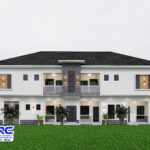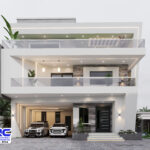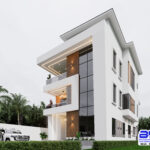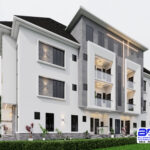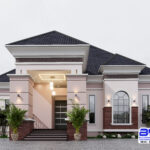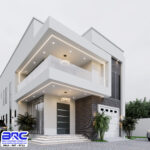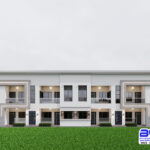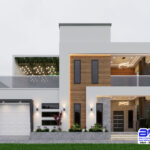Nigeria is currently experiencing rapid urbanization and development in the construction sector.
Table of Contents
ToggleThis growth is caused by its growing population and the increased demand for quality houses.
Contractors are building while new home owners are making plans to build. Regardless of the
building intention, it is important to understand the building materials used for building houses in
Nigeria. At BullionRise Consult, we understand this need that is why we came up with a
detailed list of building materials used for building houses in Nigeria.
Building materials that are used for building houses in Nigeria are discussed below:
- Cement
- sand
- gravel
- sandcrete blocks
- wood
- metal
- POP(plaster of paris)
- glass
- paint
- burnt bricks
- vitrified tiles
- terrazzo flooring
- concrete floors
- ISEs
- Corrugated metal sheets
- aluminium roofing sheet
- clay tiles
1.Cement
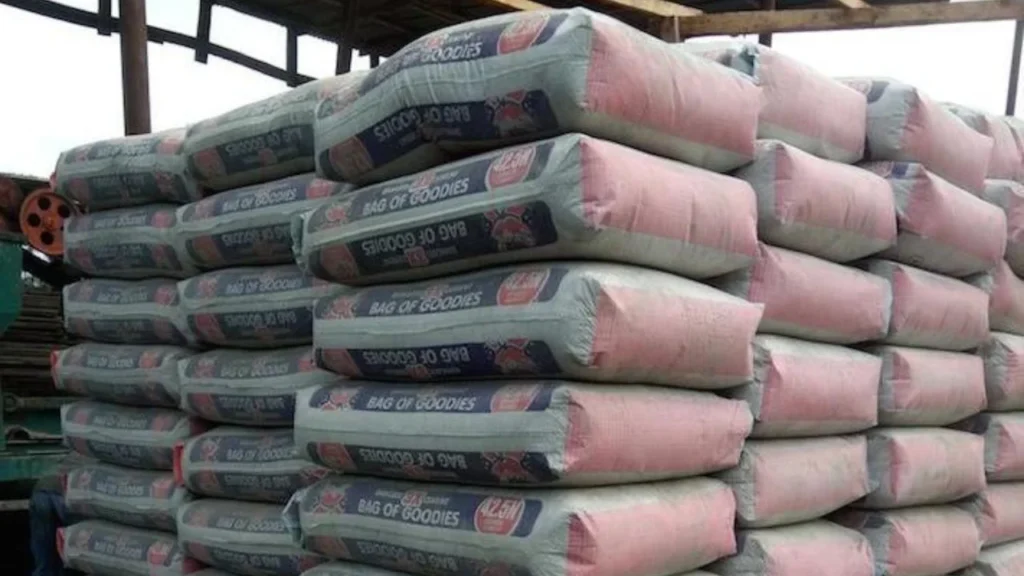
cement as we all know is the cornerstone of any modern construction. It is used to bind
aggregates (sand and gravel) and water together to form concrete. This are then used as
workforce material for the construction of foundations, slabs, and structural elements. There are
several cement companies in Nigeria which include: Dangote cement, BUA cement, Ashaka
cement and Lafarge cement.
Sand
sand are used in concrete and mortar mixes. It provides the structural integrity and bulk
used in building construction. It is important to note that the size and gradation of sand particles
greatly influences the workability and strength of the concrete.
Gravel
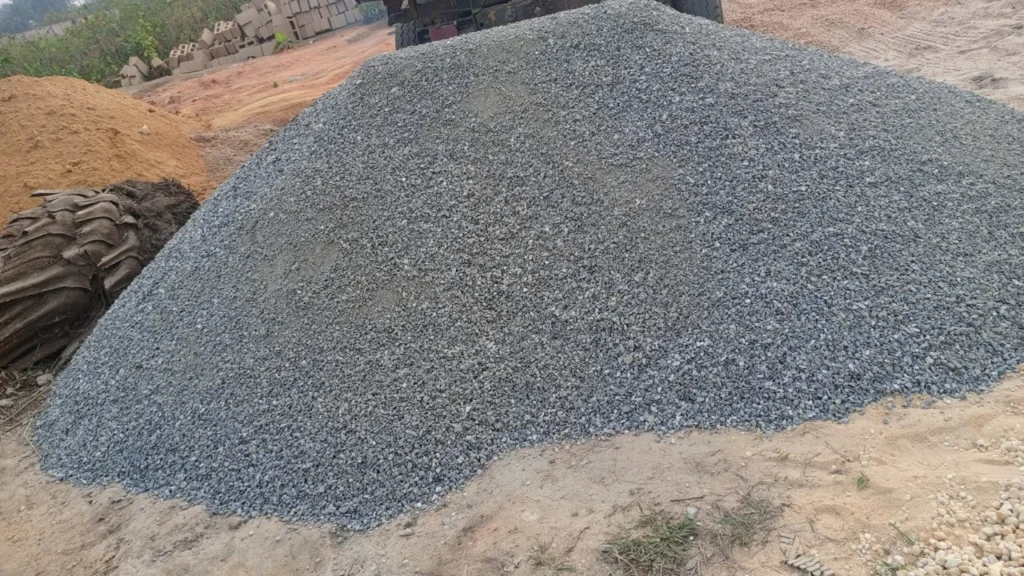
gravels are crushed stones of different sizes which forms the base layer for foundations
and improves drainage.
Sandcrete Blocks
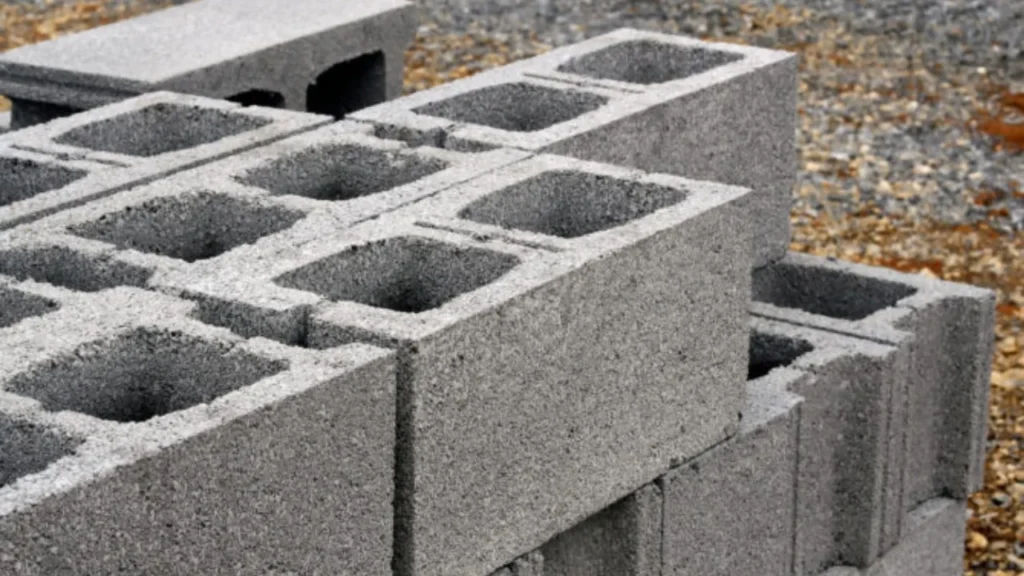
Sandcrete blocks is a cost-effective and widely used alternative block in
Nigeria. They are pre-cast concrete blocks that is made from sand, cement, and water.
They come in various sizes of 6-9 inches and also offer good structural strength.
Wood
These are used for doors, windows, cabinets, and decorative features. Woods offer
warmth and beauty. Many Nigerian builders choose termite-resistant and sustainably sourced wood.
Metal
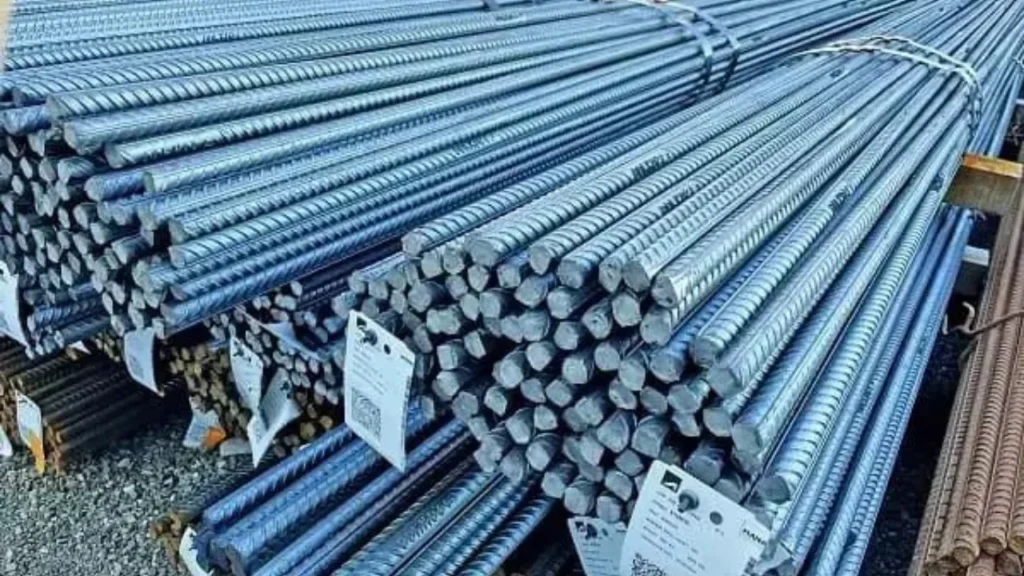
Metals are substantial, hard, and glossy.
Aluminum is widely used in the construction industry. Aluminum’s toughness, strength,
and design flexibility make it suitable for various applications such as roofing, windows, coating, and doors.
Steel’s high energy content makes it a perfect building material.
Zinc is commonly used for roofing due to its high corrosion resistance.
Metal can also be utilized as iron reinforcement rods to strengthen columns and slabs.
POP (Plaster of Paris)
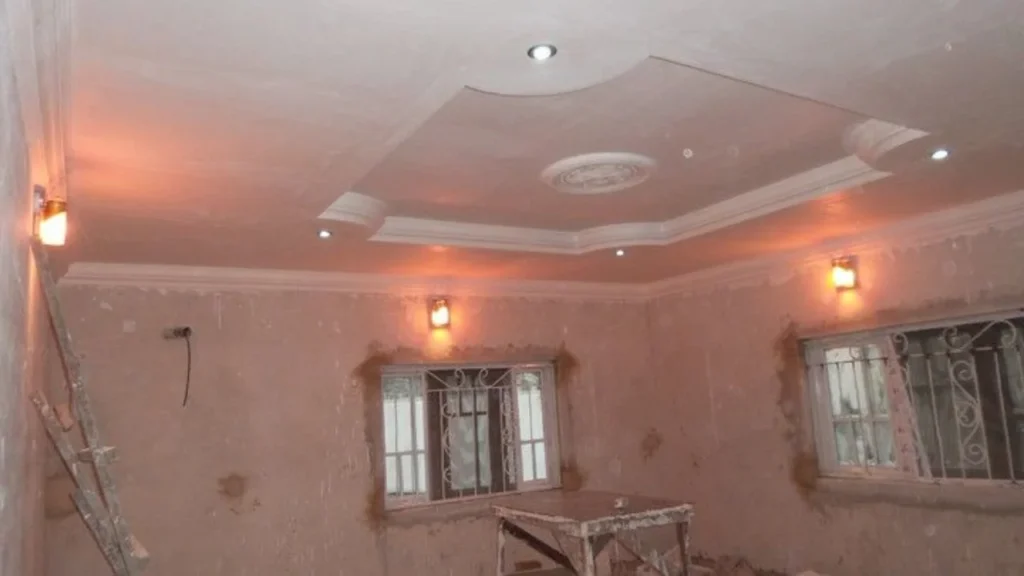
POP is made into a powder, which is then mixed with water to create a slurry paste.
The hardened product is used to coat ceilings in the majority of Nigerian modern homes.
We shape it into different forms to create architectural designs.
POP, which primarily consists of gypsum, is applied to enhance the visual appeal of structures.
Shine and smoothness are provided by the gypsum component.
Glass
Large windows and glass doors allow natural light and create a sense of spaciousness at
homes. When building a house do well to consider and energy-efficient glass options in other to
reduce heat gain.
Paint
The right paint color can transform a house and make it aesthetically beautiful.
Choose high-quality paints formulated for the Nigerian climate. Also consider factors like moisture
resistance and mildew prevention. Different brands that produce paints used in the construction
industry in Nigeria: Berger paints, Meyer paints, Dulux paints and Portland paints amongst others.
The choice of building materials used in Nigeria is greatly influenced by a several factors which
includes; climate, availability, cost, and cultural preferences. While traditional materials like
mud and thatch are still in use, modern materials like cement, steel, and glass dominate urban
and metropolitan construction.
Burnt Bricks
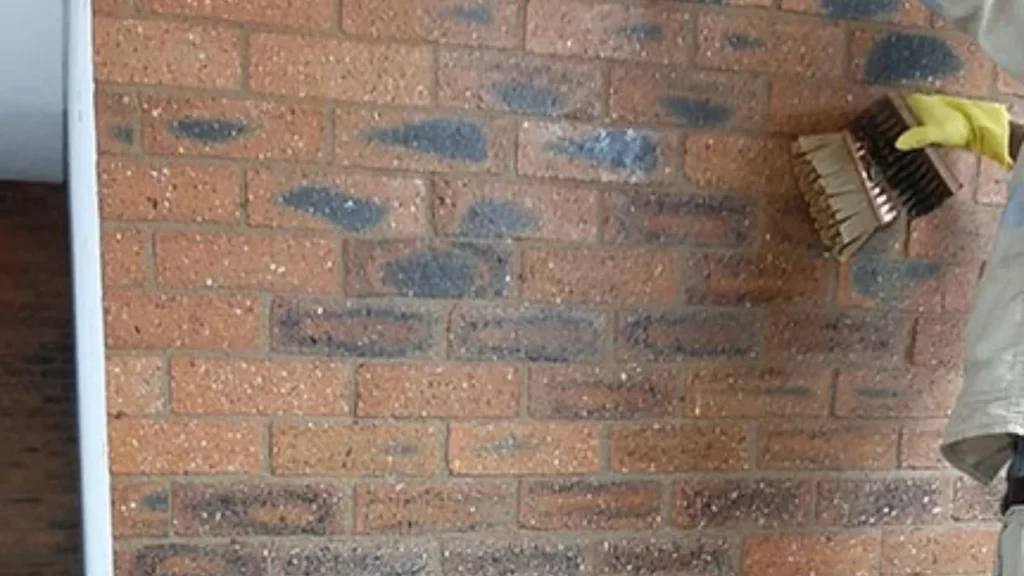
burnt bricks are traditional and long-lasting. They offer excellent thermal
insulation, fire resistance, and soundproofing quality. They are reddish-brown in color which
adds a classic aesthetic touch.
Vitrified Tiles
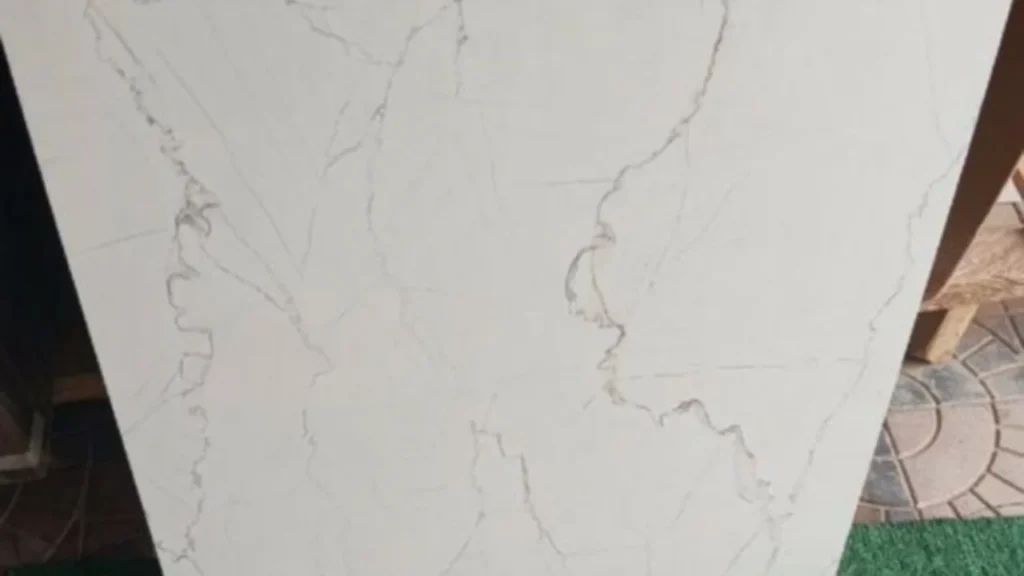
vitrified tiles as building materials in the Nigerian market are highly durable and
stain-resistant. They are a popular choice for areas that are high traffic like kitchens and
bathrooms. They also come in different colors and patterns.
Terrazzo Flooring
Made from marble chips, cement, and pigment, terrazzo is a unique and
decorative flooring option in Nigeria. It is very durable and easy to maintain.
Concrete Floors
Polished concrete floors offer a modern aesthetic and can be very durable.
They may require sealing to prevent staining and can feel cold underfoot.
Interlocking Stabilized Earth Blocks (ISEs)
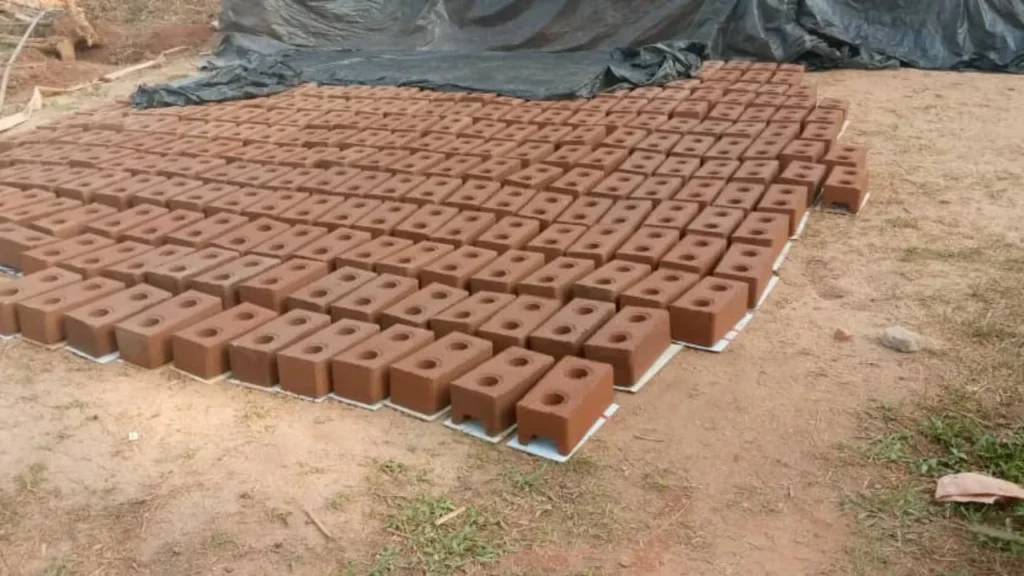
ISEs are compressed earth blocks stabilized with a small amount of cement that is an
eco-friendly option among builders in Nigeria. They offer good thermal mass and
are relatively inexpensive but require proper curing and not suitable for high-rise buildings.
Corrugated Metal Sheets:
corrugated metal sheets are roofing sheets that are available in
various thicknesses and profiles. They are lightweight, durable and affordable. They also offer
good rain protection but can get very hot in some hot regions and also in direct sunlight.
Aluminum Roofing Sheets
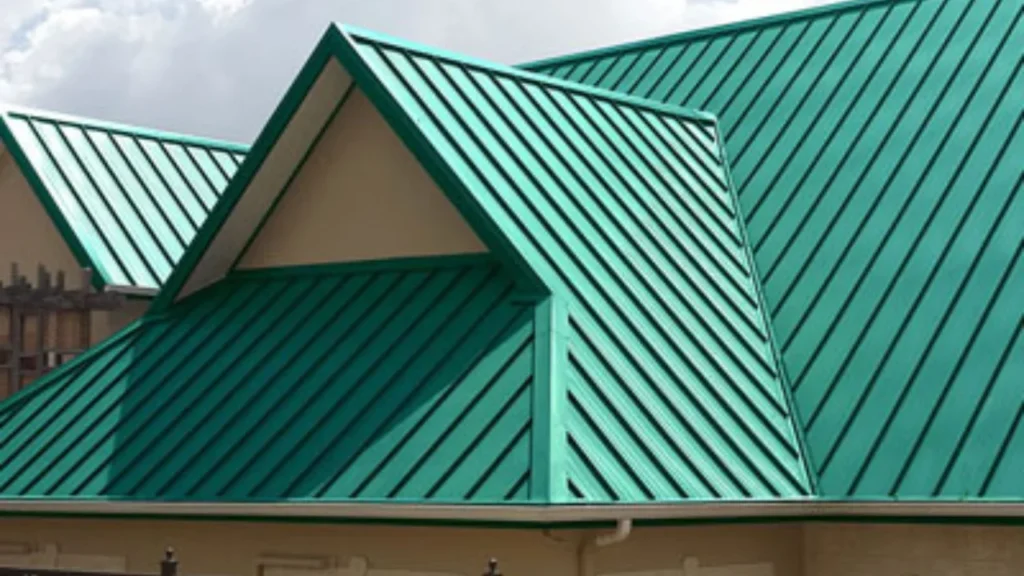
aluminum sheets are lighter alternative to corrugated metal. For building materials in the
Nigerian market, aluminum sheets offer good corrosion resistance and
reflectivity. However, they are more expensive than corrugated metal sheets and may dent more easily.
Clay Tiles
clay tiles provide excellent insulation and timeless look. They are quite heavy and
require a strong roof structure but they offer good and superior durability.
Bonus Tip
make sure to consult with experienced architects, engineers and contractors who can
guide you in selecting the most suitable building materials for your house project and budget in Nigeria.
What are the most common building materials used in Nigeria?
The most commonly used building materials are cement, sand, gravel, bricks, steel rods, and wood.
Are locally sourced materials reliable for building houses in Nigeria?
Yes, locally available materials, such as laterite, granite, and palm kernel shells, are dependable and often inexpensive.
How do I choose the right building materials for my house?
Consult a competent builder or architect to ensure that the materials you use are appropriate for your location’s design, climate, and soil type.
Is it more expensive to use imported building materials?
Imported materials are typically more expensive due to transportation expenses and customs, but they may provide greater quality or specific features.
What are sustainable building materials available in Nigeria?
Bamboo, recycled materials, compressed earth blocks, and reclaimed timber are all eco-friendly and help to lessen environmental effect.


